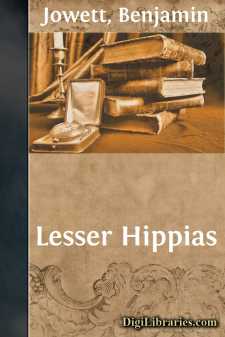Fiction
- Action & Adventure 180
- Biographical 15
- Christian 59
- Classics
- Coming of Age 5
- Contemporary Women 3
- Erotica 8
- Espionage/Intrigue 12
- Fairy Tales, Folklore & Mythology 236
- Family Life 169
- Fantasy 117
- Gay 1
- General 596
- Ghost 32
- Historical 808
- Horror 43
- Humorous 160
- Jewish 25
- Legal 4
- Medical 22
- Mystery & Detective 315
- Political 49
- Psychological 41
- Religious 64
- Romance 159
- Sagas 11
- Science Fiction 730
- Sea Stories 113
- Short Stories (single author) 537
- Sports 10
- Suspense 1
- Technological 8
- Thrillers 2
- Urban Life 31
- Visionary & Metaphysical 1
- War & Military 173
- Westerns 199
Classics Books
Sort by:
CHAPTER I. THE POLAR SHIP. "Oh, it's southward ho, where the breezes blow; we're off for the pole, yo, ho! heave ho!" "Is that you, Harry?" asked a lad of about seventeen, without looking up from some curious-looking frames and apparatus over which he was working in the garage workshop back of his New York home on Madison Avenue. "Ay! ay! my hearty," responded his...
more...
CHAPTER I One day, in the November following William Wetherell's death, Jethro Bass astonished Coniston by moving to the little cottage in the village which stood beside the disused tannery, and which had been his father's. It was known as the tannery house. His reasons for this step, when at length discovered, were generally commended: they were, in fact, a disinclination to leave a girl of...
more...
by:
James Parton
HENRY CLAY. The close of the war removes the period preceding it to a great distance from us, so that we can judge its public men as though we were the "posterity" to whom they sometimes appealed. James Buchanan still haunts the neighborhood of Lancaster, a living man, giving and receiving dinners, paying his taxes, and taking his accustomed exercise; but as an historical figure he is as...
more...
by:
Benjamin Jowett
APPENDIX I. It seems impossible to separate by any exact line the genuine writings of Plato from the spurious. The only external evidence to them which is of much value is that of Aristotle; for the Alexandrian catalogues of a century later include manifest forgeries. Even the value of the Aristotelian authority is a good deal impaired by the uncertainty concerning the date and authorship of the...
more...
by:
Mary Grant Bruce
CHAPTER I LANCASTER GATE, LONDON, W "Do the beastly old map yourself, if you want it. I shan't, anyhow!" "Wilfred!" "Aw, Wil-fred!" The boy at the end of the schoolroom table, red-haired, snub-nosed and defiant, mimicked the protesting tone. "I've done it once, and I'm blessed if I do it again." "No one would dream that it was ever meant for...
more...
by:
Edmund Obecny
CHAPTER I Bukowiec, a station on the Dombrowa railroad, lies in a beautiful spot. A winding line was cut among the beech and pine covered hills, and at the most level point, between a mighty hill towering above the woods with its bald and rocky summit, and a long narrow valley, glistening with pools and marshes, was placed the station. This two-story building of rough brick containing the quarters of...
more...
A'RON, a Moor, beloved by Tam'ora, queen of the Goths, in the tragedy of Titus Andron'icus, published among the plays of Shakespeare (1593). (The classic name is Andronicus, but the character of this play is purely fictitious.) Aaron (St.), a British martyr of the City of Legions (Newport, in South Wales). He was torn limb from limb by order of Maximian'us Hercu'lius, general...
more...
THE MADNESS OF MAY I Billy Deering let himself into his father’s house near Radford Hills, Westchester County, and with a nod to Briggs, who came into the hall to take his hat and coat, began turning over the letters that lay on the table. “Mr. Hood has arrived, sir,” the servant announced. “I put him in the south guest-room.” Deering lifted his head with a jerk. “Hood—what Hood?”...
more...
by:
John Ruskin
PREFACE. I was in hopes that this volume might have gone its way without preface; but as I look over the sheets, I find in them various fallings short of old purposes which require a word of explanation. Of which shortcomings, the chief is the want of reference to the landscape of the Poussins and Salvator; my original intention having been to give various examples of their mountain-drawing, that it...
more...
CHAPTER I THE PRISONERS A boy and a man sat in a room of a stone house in the ancient City of Mexico, capital in turn of Aztec, Spaniard and Mexican. They could see through the narrow windows masses of low buildings and tile roofs, and beyond, the swelling shape of great mountains, standing clear against the blue sky. But they had looked upon them so often that the mind took no note of the luminous...
more...











